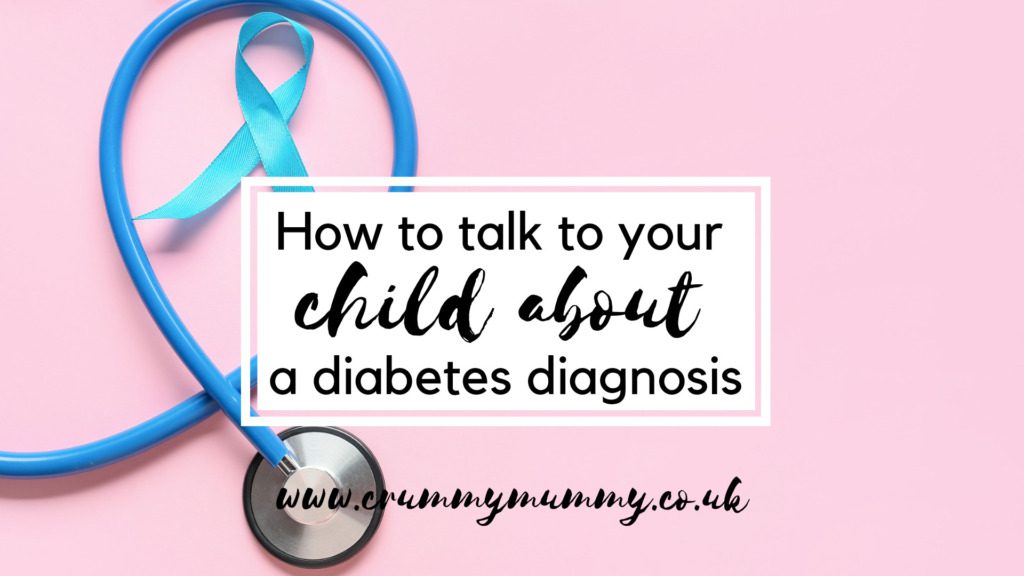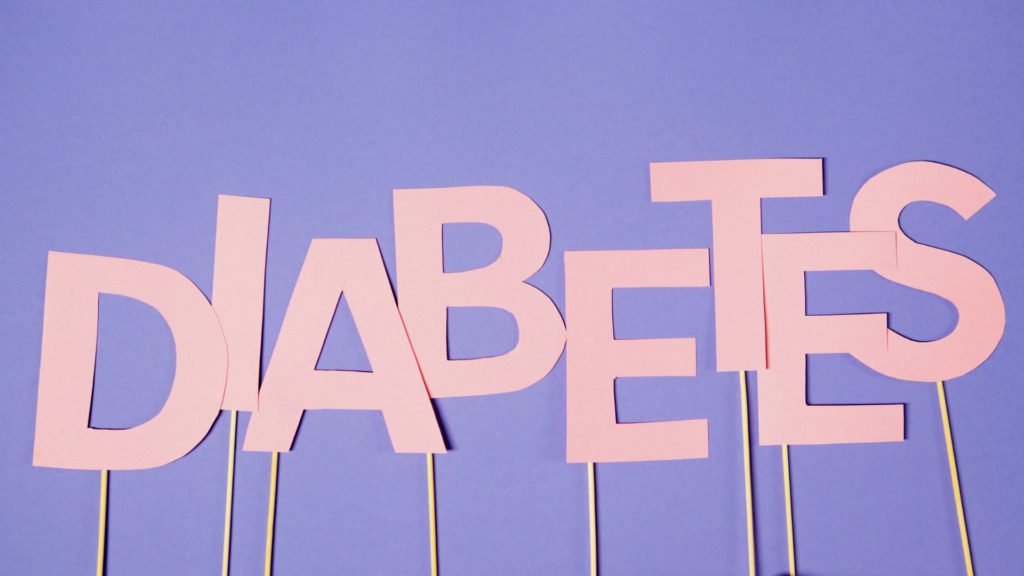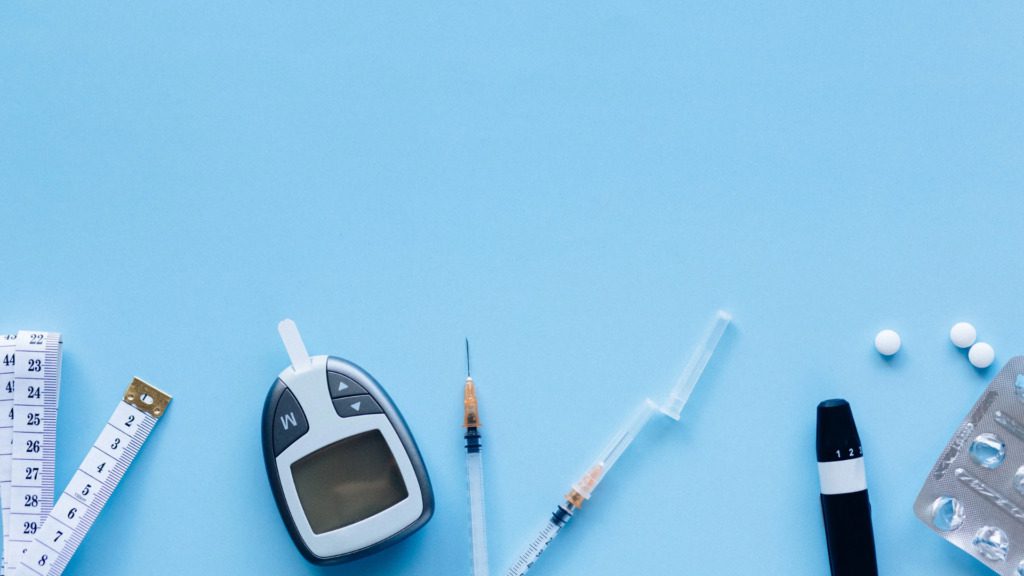If there’s one thing anyone who has ever been given a diabetes diagnosis will tell you it’s that the condition doesn’t just affect the person who has it. It affects the entire family unit.
If you’re a long time follower of the blog you’ll know we’re a type 1 family: Misery Guts was diagnosed with type 1 diabetes when he was 12 and diabetes is something each of us live with every day in different ways.

Now we’re a family of six diabetes is naturally something the kids ask about and question as they grow up. The question is, how do you talk to a child about a diabetes diagnosis? How much should tell them, and what if you don’t think they’ll be able to comprehend what is going on?
Of course, it’s natural to want to protect a child from such news, but as I’ve discovered it’s not a good idea. Every child and every circumstance is unique and children notice and absorb more than adults realise.
This post may contain affiliate links. This means if you buy something after clicking on a link, I’ll earn a few pennies to help me keep creating posts like this, at no extra cost to you!
If the prospect of explaining an illness like a diabetes diagnosis to your child is a daunting prospect in this collaborative post here are some tips on how to talk about it with your child.
How to talk to your child about a diabetes diagnosis
Use age-appropriate explanations & language
It is important to consider your child’s age and developmental stage. In the case of type 2 diabetes, information worth sharing would include a description of the disease and what is happening in the body of the person affected. Explain environmental changes that may need to be made and inform them that this disease is not contagious. Type 2 diabetes (when the body is resistant to insulin) is more prevalent in the older generation but is becoming more common in children, while type 1 diabetes (when the body produces no insulin at all) affects people of all ages.

Be prepared for a reaction
Be truthful and realise that the child may need to ask the same question over and over. Be ready for any response. Reactions might manifest themselves in a variety of ways, such as changes in behaviour or problems at school. Also, reactions can be delayed. Younger children sometimes feel as though events that occur are in response to their actions. As a result, children may experience feelings of guilt. Be sure to assure them that this is not the case. Also, in the case of a type 2 diabetes diagnosis, talk about ways you can become more health aware as a family and work on issues like inactivity and obesity.

Don’t hide your feelings & seek help
Don’t try to keep your feelings hidden. If you’re upset or worried, say so. You want your child to realise that it’s normal to have a reaction and be open about their feelings. A mental health professional can be very helpful in supporting both you and your child. As the saying goes, it takes a village to raise a child and this could not be truer than when a loved one is unwell.
It might be difficult to help children cope with the consequences of diabetes in the family, but by discussing the condition with children, you may allay their anxieties, validate their feelings, and send the message that they are valued members of the family who can all work together to cope with the disease.

Remember, a lack of information can fill children with uncertainty and fear. It is, therefore, better to communicate openly with your child and let them work on their emotions. They must be included and feel free to ask questions. They may even feel the need to help in their own way. This is all part of the process.
It’s also important to remember that life-changing events like a diabetes diagnosis can lead to amazing things – like Misery Guts running 150 miles across the Sahara desert. Without a shadow of a doubt it was his diabetes diagnosis that spurred him on, and he raised thousands of pounds for diabetes charities in the process. And I can’t think of a better role model for our kids.
Have you or has someone you know recently received a diabetes diagnosis? I’d love to hear about your experience.
This is a collaborative post.

























Leave A Comment